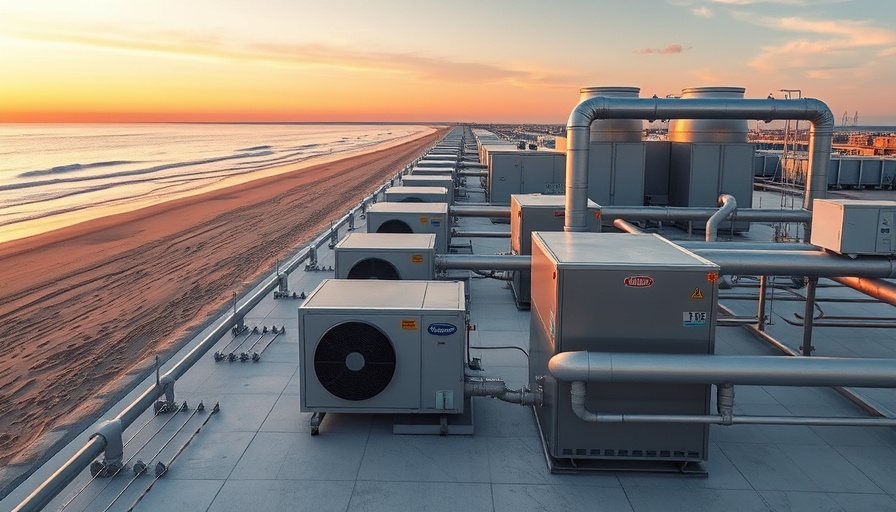
Understanding the Water Footprint of Data Centers
As artificial intelligence (AI) continues to shape our digital landscape, the demand for data centers rises alongside it. These massive repositories of information not only consume electricity but also require significant volumes of water for cooling purposes. The recent findings outlining the water usage by tech giants such as Amazon, Google, Microsoft, and Meta raise critical questions about sustainability and resource management.
Why Water Usage is a Growing Concern
According to a 2024 report from the Lawrence Berkeley National Laboratory, U.S. data centers consumed approximately 17 billion gallons of water in 2023, with projections suggesting this might double by 2028. This is alarming given the increasing strain on local water resources, particularly in regions like the Great Lakes, which are already stressed by competing demands from nearby communities.
Data Centers and Their Impact on Local Resources
In states like Wisconsin, where technology companies are eyeing the Great Lakes region to host new data centers, the implications can be extensive. For example, one Iowa data center was reported to consume over a billion gallons of water—equivalent to the residential water needs of the entire state for five days. Such statistics indicate that data centers can comprise more than 25% of some local water supplies.
Transparency in Water Reporting
Despite these growing concerns, it appears that many tech companies are not fully transparent about their water usage. Our forthcoming research highlights the discrepancies in water usage disclosures in corporate sustainability reports compared to actual demands observed through public records. This lack of clarity can make it challenging for communities, especially those relying on the Great Lakes, to understand the implications of placing more data centers in their vicinity.
Emphasizing Sustainability in Business Practices
For small and medium-sized business owners involved in the service industry and new to AI technologies, understanding data centers' water usage is vital. Not only does it affect resource availability, but as awareness grows, so does the need for businesses to adopt more sustainable practices. Investing in AI solutions can help streamline operations while being mindful of their environmental impacts.
Actionable Insights for Businesses
As technology continues to evolve, it’s imperative for business owners to stay informed about the environmental repercussions of their tech choices. Assessing how different providers manage their water use and opting for those who demonstrate transparency and responsibility can be a step toward achieving sustainability goals while still embracing the benefits of AI.
Ultimately, aligning your business objectives with sustainable practices not only contributes to community health but can also enhance your brand's reputation in an increasingly eco-conscious market.
 Add Row
Add Row  Add
Add 










Write A Comment